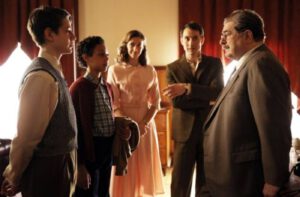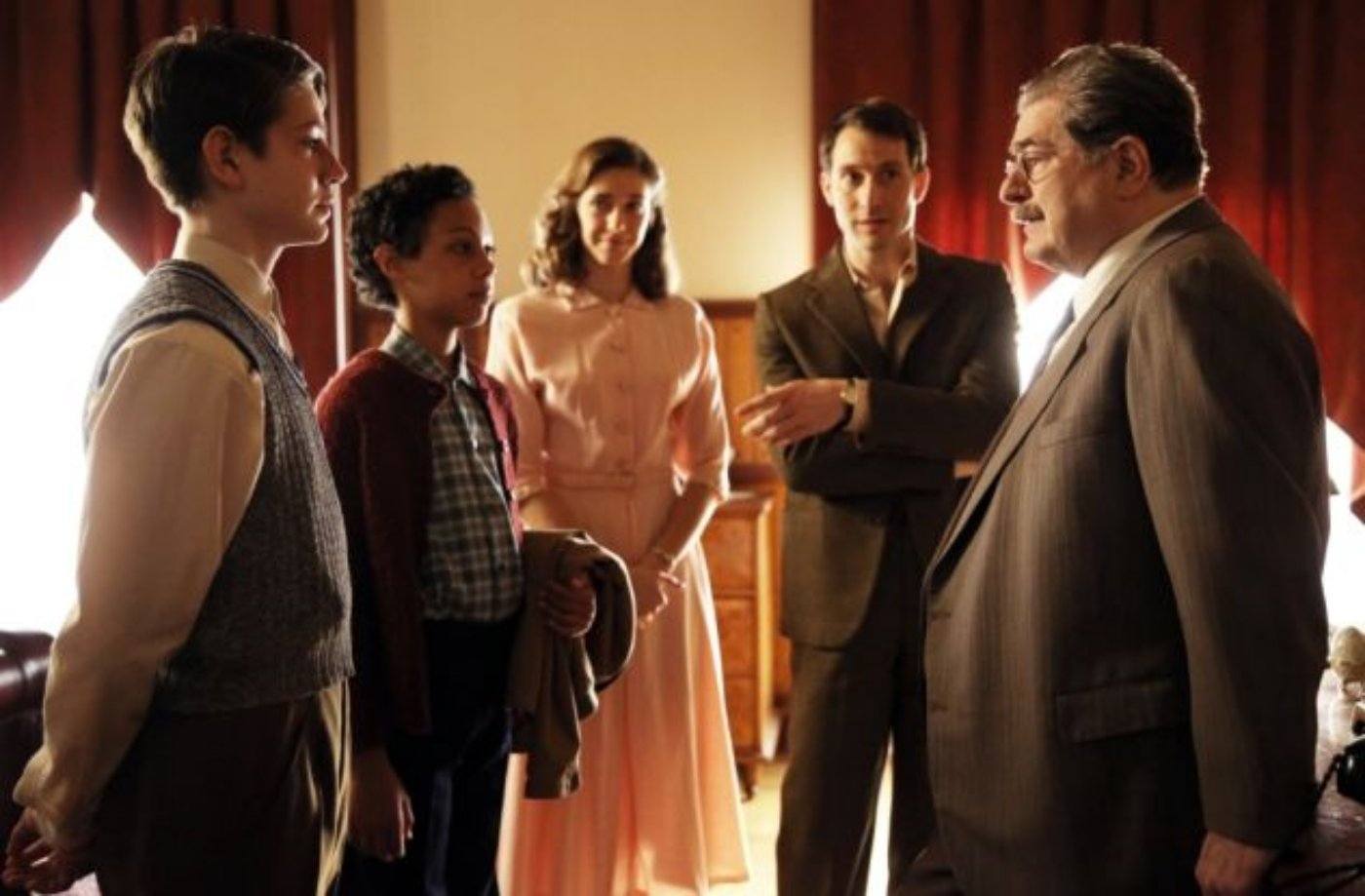Movie Info
Movie Info
- Director
- Wolfgang Murnberger
- Run Time
- 1 hour and 30 minutes
- Rating
- Not Rated
VP Content Ratings
- Violence
- 1/10
- Language
- 1/10
- Sex & Nudity
- 0/10
- Star Rating
Relevant Quotes
Father of orphans and protector of widows
is God in his holy habitation.

Austrian director Wolfgang Murnberger’s film, set in postwar Vienna, drew me at first because its young hero seeks to become a member of the famed Vienna Boys’ Choir. Thoroughly predictable in its plot for adults, it is nonetheless suitable entertainment for a family, with its themes of yearning and talent and perseverance and antiprejudice prevailing at its conclusion.
Young Benedikt Thaler (Wainde Wane) was born from the liaison of a Black American soldier with an Austrian woman right after World War Two. The soldier was suddenly transferred, and the mother took sick and died, leaving Benedikt with the grandparents who run an inn. Unfortunately, Grandfather Thaler hates the boy because of prejudice, and so has intercepted and hidden the letters that the father Jerry Delgado (Tyron Ricketts) has written. The boy is a gifted singer, though the song his grandfather asks him to sing for patrons is a vulgar drinking ditty. Despite the sentiments of Grandmother Thaler, the old man abuses the boy, treating him like a slave and forcing him to sing for patrons.
Benedikt has a dream of joining the Vienna Boys Choir. We see its beginning at the start of the film when some bullies chase the boy, he bloodies the nose of one of them, and then eludes them in the village by sneaking into the movie theater where a newsreel featuring the Vienna Boys Choir is showing. He learns that the choir will be touring America, so he conceives the plan of joining it so he can go to America and find his father. He runs away from home, and after an adventure on a train heading for Vienna, he manages to reach the academy, where conveniently auditions are taking place. His audition is about as funny as it is preposterous, but the master of one of the choirs, Max Goldberg (David Rott) is so impressed with the lad’s voice that he persists in getting Benedikt enrolled despite the rules and regulations. He is supported in this by staff member Elsa Brandi (Miriam Stein), with whom, of course he will fall in love, despite the feelings of staff member Hans Roschek (Philipp Hochmair) who has loved her since they were children together. The Academy’s Direktor (Erwin Steinhauer)
Benedikt faces bullying again, this time at the hands of the oldest choir member Kurt Strolz (Timotheus Hollweg). The bully is filled with racism of so many others, plus he fears that the newcomer’s strong voice might be better than his. He proves o be more than a cardboard villain, when later he tells the ever-sympathetic Elsa about his abusive home life and he does something that is heartwarming, a lovely moment of grace in regards to Benedikt.
Benedikt is not the only character on a quest. Max lives in a small apartment with his father Siegfried Goldberg (Karl Merkatz), a Holocaust survivor. Mr. Goldberg had sent his son to America as restrictions on Jews increased during the 1930s. He had stayed with his wife in the belief that persecution could not get worse, so that when the Germans took over Austria and started rounding up Jews, it was too late to leave. He and his wife were separated when he had left their apartment on a mission to secure papers and an escape route, he had been arrested by the Gestapo. The two had previously agreed to meet at the small park across from their apartment if they were separated, so he now spends his days going and sitting on one of its benches, just in case she should return. He is very supportive of the boy, and Benedikt proves crucial in his quest to discover the fate of his wife.
Meanwhile, we catch brief glimpses of Benedikts grandmother becoming more and more dissatisfied with her racist husband. And we see a little more of Benedikt’s father, still one of the US soldiers occupying the country. Jerry Delgado (Tyron Ricketts) seems to spend his non-duty time as a pianist at a nightspot and soon to be released for his return to America. How the father will come to learn about the son he did not know existed is a bit improbable but still heartwarming.
There are some good scenes of music, including the toe-tapping duet from the opera Hansel and Gretl, as well as a gorgeous duet by father and son at the movie’s climax, a tune so beautiful that it just might bring tears to your eyes. The most lively scene consists of a dance by the boys and even Max and Elsa to a hybrid version of the duet that Hansel and Gretel sing in the first act of the opera. Max tells the children that the opera and American music can go together, as he demonstrates on the piano, switching from the traditional dance rhthym of the opera to a Boogie Woogie one that immediately gets the children to tap heir toes and then to commence dancing. Two boys replace him at the piano and Max engages Elsa in a jitterbug style dance. Everyone is having a good time until the snoopy Hans, who sees himself as the Academy’s disciplinarian, interrupts. Again, this scene is improbable, but musically it is a highlight that is fun to watch and hear.
There are many such improbable scenes, and yet the film still delights, teaching well lessons of acceptance of differences, reconciliation, and sacrifice for the good of others. And its available free on Freevee
This review will be in the Sept. issue of VP along with a set of questions for reflection and/or discussion. If you have found reviews on this site helpful, please consider purchasing a subscription or individual issue in The Store.

